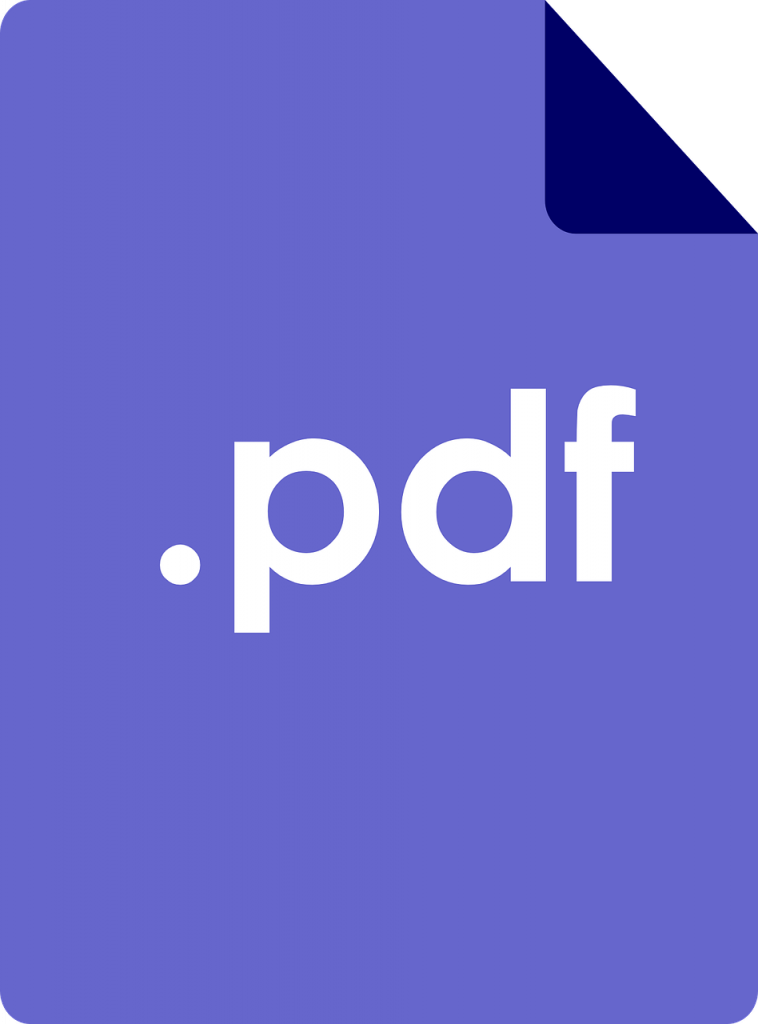Starting a new career is always tough, but breaking into freelance writing can be downright brutal. The roads are paved with rejections and low salaries, and that can be discouraging for new and experienced writers alike.

I’m Kim Key, a freelance writer working in the technology niche. I want to help you get gigs and turn your passion into a full-time job.
Let’s Get Started
Are you new to freelancing? Maybe you’re in need of some new contacts and new opportunities. Either way, How to Become A Freelance Writer offers ways to pitch, land gigs, and get paid for your writing.

Fill out the form below to download your own copy of this guide to take offline. Are you ready to dive into the world of freelance journalism? Continue your journey below.
Getting Freelance Writing Jobs
What is the freelance writer salary? How can you get freelance writer jobs? How do you write a pitch letter? Who do you pitch to? What happens if you don’t have many clips? We’ll tackle those questions in the next sections.
Getting Started
Once you have an excellent story idea, first determine where you want your article placed. Make a list of outlets or websites where you’d like to see your story published.
Remember to shoot for the stars! Don’t leave off prestigious publications just because you’re a new writer, or you don’t have a lot of experience. Editors want fresh new ideas, no matter where they come from, so feel free to offer up your story.
Write the Perfect Pitch
The art of the pitch is one perfected over years of trial and error. Your first pitch emails may not be very good, and that’s okay. You’ll learn best practices for pitching to different editors as you go along. Here are some key things to remember:
- Search for the subject before pitching. Make sure your story hasn’t already been covered by the publication. If it has, see if you can come at the story from another angle. Is there an update? You may have a pitch-able story on your hands!
- Make sure your pitch is complete yet concise. Condense your story into just a few sentences. If you can’t write the subject, conflict, and resolution of the story in one paragraph, you need to refine your story a bit more before pitching. Editors do not want an 800 word pitch email.
- Don’t include a draft. It’s tempting to pre-write a story you plan to sell, but that makes your job harder in the end. Your editor may like your story idea, but want to do it from a different angle or find a new focus, so you have to rewrite the story in the end.
- Make sure you’re pitching to the right editor. The tech editor won’t know what to do with your fashion listicle pitch, so make sure you’re sending your email to the appropriate person before you take the time to write it.
- Include links to recent, relevant clips. If you don’t have any work (paid or unpaid) related to the topic you want to write about, using other clips is fine. This is your chance to prove you can write. If you don’t have any work published online yet, get started now! Start a blog related to the niche you want to write about.
- Include a link to your website or portfolio. Pretty self-explanatory, but it helps to show you have a space online for all of your ventures.
Check your work with the Freelance Article Pitching Checklist!
Learn the Art of Patience
Waiting for a response from editors can be quite the exercise in patience, but it will pay off in the end. Pestering editors every day won’t help your cause, but remember to follow up! Gently nudging an editor if you haven’t heard a response in a week is fine, but constantly bumping your pitch email to the top of their inbox is a bad idea.
Check out some pitch email examples here!
Get Paid What You’re Worth
You don’t have to accept jobs that pay .02 a word. No really, STOP accepting the barest of minimums, and get paid a living wage for your work. Always ask your editors for more money. The worst they can say is “no”. They still need the work done, and they want to keep you working for them! Always ask for more money, and don’t accept huge jobs on sites like Upwork and Fiverr for $5/gig.
Scroll down to find out how to diversify your income as a freelance writer.
Key Resources:
Study Hall: A top resource for working freelance writers of all kinds, but particularly bent towards working journalists. A number of free resources are available, but their Editor List, Pay Rates, message boards and Slack channels are valuable resources to help get your foot in the door at major publications.
Of particular interest is their weekly Opportunities emails that highlight great writing gigs posted by editors, along with valuable contact information.
Freelance Writing Jobs: A place to find top notch opportunities at major media outlets and universities around the United States.
Journalismjobs.com: Another great resource board for job listings at major outlets and smaller, independent outfits.
Writers of Color: An amazing resource for writers of color, the mods behind this Twitter account list the payout and due date for pitches to top publishers and media outlets around the globe.
They won’t waste your time with lowball writing offers that pay in cents and exposure.
Sonia Weiser’s Opportunites of the Week: For just $3 a month, you get the inside scoop on new paid writing opportunities delivered to your inbox twice a week. It also includes advice on pitching, a place to share your landed articles and more. It’s an incredible value.
Who Pays Writers: A crowd sourced site that contains rate information for various media outlets. There are many places paying the fabled $1.00/word on a regular basis, you just have to find them!
Your Rate: Not sure how much to charge for your work? Determine how much your annual income needs to be for you to work either part-time or full-time as a freelancer. Then decide how many hours you want to work, and how many weeks off you will give yourself each year. Lock in all of those numbers and the website will produce your freelance rate. If it looks a bit high, consider that you may take slightly lower paying jobs that you can complete quickly, thus raising your hourly rate. You aren’t beholden to that hourly rate either! You can charge a flat fee per project, or charge a weekly or daily rate for your work.
Perfecting Your Craft
It may have been a long time since you had to write, or maybe you’re transitioning from another career where writing wasn’t your focus. As long as writing is your passion, you can make money from freelance writing. As with most things, people who are best at what they do are the most successful.
Writing is like any other skill, it takes time and effort to perfect it. You will need to brush up your skills, whether that’s writing cold pitch emails, writing personal essays, or writing reported long-form articles. Below is a list of resources to keep you ahead of the game when it comes to freelance writing.

Key Resources:
The Write Life: A site packed full of helpful advice about freelancing, SEO strategy, outlets that are paying freelancers and more. It’s a great starting point for your freelancing journey.
Freelancing with Tim: Get frank freelancing advice from a New York Times editor! Smarter Living editor Tim Herrera conducts weekly sessions over Zoom with aspiring and working freelancers to help you learn the art of writing, editing and podcasting for money.
With help from esteemed experts, Tim discusses everything from pitching strategies to contract and rate negotiations.
How to Write: This guide from Dana Sitar helps writers realize who their readers are and how to connect with them. You get the guide for free when you sign up for her monthly newsletter which is packed full of tips about pitching, writing, and how to keep editors happy.
The Freelance Beat: A newsletter written by Tatiana Walk-Morris, a New York Times published writer, who offers good advice for new freelancers.
Writer Resources
Freelancing can be a lonely profession. You are in charge of everything from your health insurance to payroll to legal representation. On top of all of that, you will also need to find people to talk to for your articles! It’s a lot.
Here are some free resources to help you out as you start or continue your freelancing journey.
Key Resources:
Freelancers Union: Striking out on your own can be scary. Making the leap from full time or part time work to full time freelancing can be tough without mentors and other resources. Freelancer’s Union works to make the transition a little more manageable, with lots of information about insurance, taxes, and negotiating salaries.
Help A Reporter Out: Looking for credible, verified sources for a story? Look no further than HARO, the no-frills site that allows you to find professionals to answer your queries and provide quotes for your news stories.
Content Marketing
One of the keys to success in freelancing is diversifying your income. This means it’s important to have multiple sources of money, so that when one inevitably falls through, the others will keep you afloat during the lean times.
A lucrative path for freelance writers is content marketing writing. Companies need writers for blog posts, articles, case studies, whitepapers, and other marketing resources. You can work for universities, companies, and other professional organizations to create written materials for their official channels.

Once you’ve picked the proper niche for your content marketing business, you can begin to market yourself to businesses and organizations who are looking for freelancers. Don’t have a niche in mind? Everyone’s an expert at something.
Whether it’s gardening, candle-making, financial technology, or cloud computing, you know about things and you know them well. Look into trade publications or trade organizations within your niche, and you’ll find some of the first publications that may need your expertise.
Key Resources:
Notes from a Hired Pen: This ebook from Jen A. Miller is a comprehensive guide to getting work in content marketing writing. She breaks down her reasons for diversifying her income and getting into content writing for universities, B2B, B2C enterprises, and good old fashioned journalism.
The Freelance Content Marketing Writer: Find your perfect clients, Make tons of money and Build a business you love: A book from content marketing maven Jennifer Goforth Gregory. It goes a step further than Miller’s ebook, going into detail about what is and is not content marketing, how to get clients, how to create your professional web presence and more.
Ann Handley’s Newsletter: Content marketing guru and best-selling author Ann Handley offers tips and tricks for persuasive marketing writing on a regular basis in her newsletter.
Hubspot Academy: Take the free six hour certification course and learn the ins and outs of content marketing and best practice strategies for businesses.
Writing Organizations
Organizations for writers can be the first place you need to look for camaraderie and professional connections.

Key Resources:
ASJA: American Society of Journalists and Authors is where journalists convene online. Once accepted into the society, you can form relationships and friendships with other published, working journalists which can turn into leads for future jobs or sources.
NABJ: The National Association of Black Journalists is a great place for working Black journalists to find mentors and friends among the illustrious ranks.
The National Press Club: Rub shoulders with some of the best of the best in journalism and writing in the National Press Club. You’ll have access to a network of working journalists and members of the media, opening doors to new opportunities for work.
The Next Step
Now that you’ve taken your first steps toward becoming a full time freelancer, it’s time to dig into new work opportunities and writer fellowship programs!
